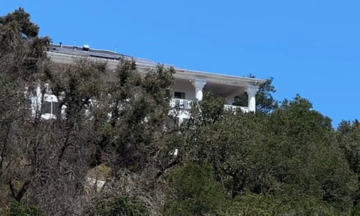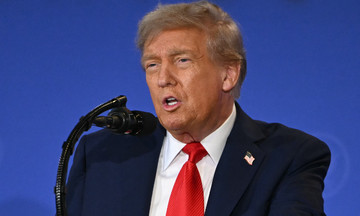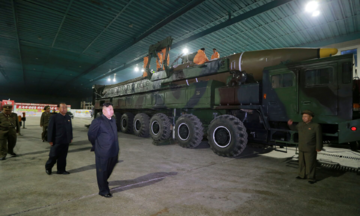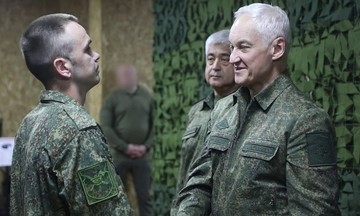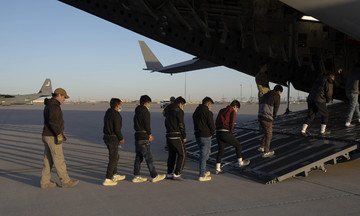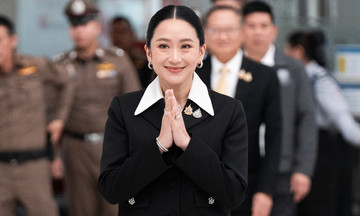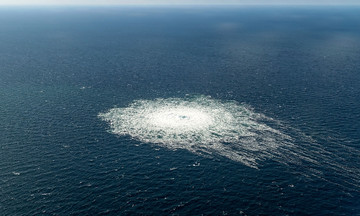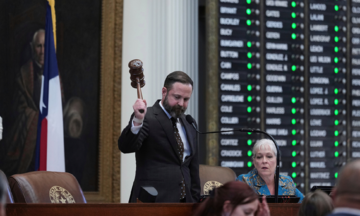The roar of Russian unmanned aerial vehicle (UAV) engines echoed across the sky one July night in eastern Ukraine. A series of explosions and flashes lit up a sunflower field as a Ukrainian mobile air defense unit opened fire. The pungent smell of gunpowder filled the air.
"There! 3 km away!", a Ukrainian air defense soldier shouted. The unit is tasked with intercepting Russian UAVs before they reach Ukrainian towns and cities.
Russia has increased its use of long-range suicide UAVs to strike targets deep inside Ukrainian territory. In a recent large-scale air attack, Russia launched over 700 UAVs towards Ukraine in a single night. Russia's Geran UAVs are becoming increasingly sophisticated, capable of flying at high altitudes and changing course mid-flight.
"They fly erratically and are unpredictable. It's becoming more difficult to destroy them. We've been effective in intercepting them, but we can't guarantee it will be like this every week," said Vasyl, a 49-year-old soldier in the mobile air defense unit in the Dnipropetrovsk region of central Ukraine.
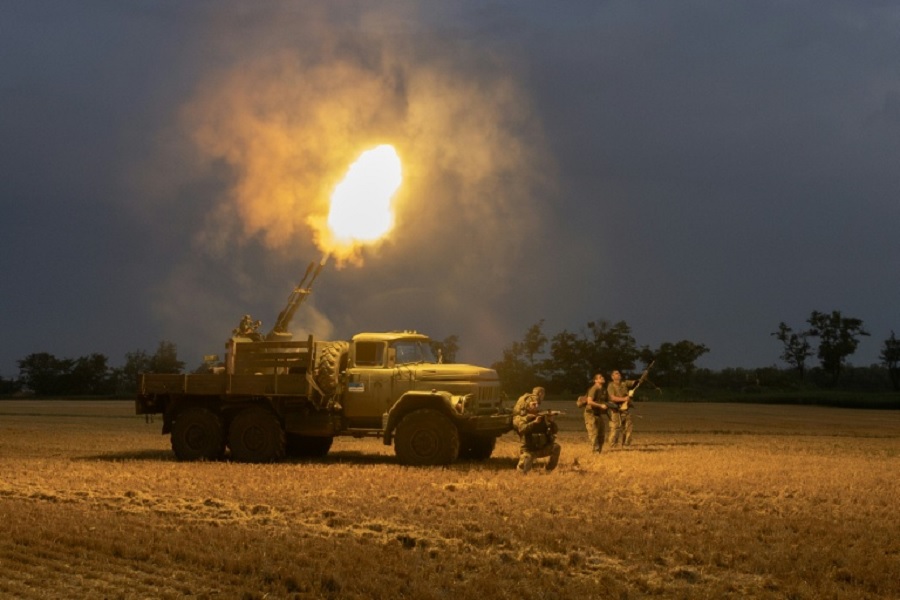 |
A Ukrainian mobile air defense unit fires at a wave of Russian UAVs near Pavlograd on 19/7. Photo: AFP |
A Ukrainian mobile air defense unit fires at a wave of Russian UAVs near Pavlograd on 19/7. Photo: AFP
Oleksandr, a soldier defending the airspace near the city of Pavlograd in Dnipropetrovsk, intently watched the radar screen as hundreds of red dots appeared.
"There's nothing we can do. That's not our area of responsibility," he said of the UAVs attacking Ukraine.
Oleksandr's 20-year-old daughter lives in Pavlograd and wasn't answering her phone at the time. "But I warned her," he said.
A loud explosion echoed, the horizon glowed crimson, and black smoke billowed into the sky moments later. Such scenes have become commonplace for Ukrainians.
President Volodymyr Zelensky said Ukraine has received several Patriot air defense systems from allies since the conflict began and is seeking funding for 10 more. However, the sophisticated and expensive Patriot systems are typically reserved for countering Russian missile attacks on high-priority targets.
To counter Russian UAVs, Ukraine is deploying inexpensive interceptor drones, similar to those used by Vasyl's unit. Zelensky has called on domestic manufacturers to increase production to 1,000 interceptor drones per day.
"People and modern weapons are what Ukraine needs to protect its airspace," Vasyl said.
Ukrainian air defense crews are often sleep-deprived, averaging only two hours of rest per night. Vasyl said that on a relatively quiet night, they might get two more hours of sleep. The lack of sleep is also taking a toll on the soldiers' health.
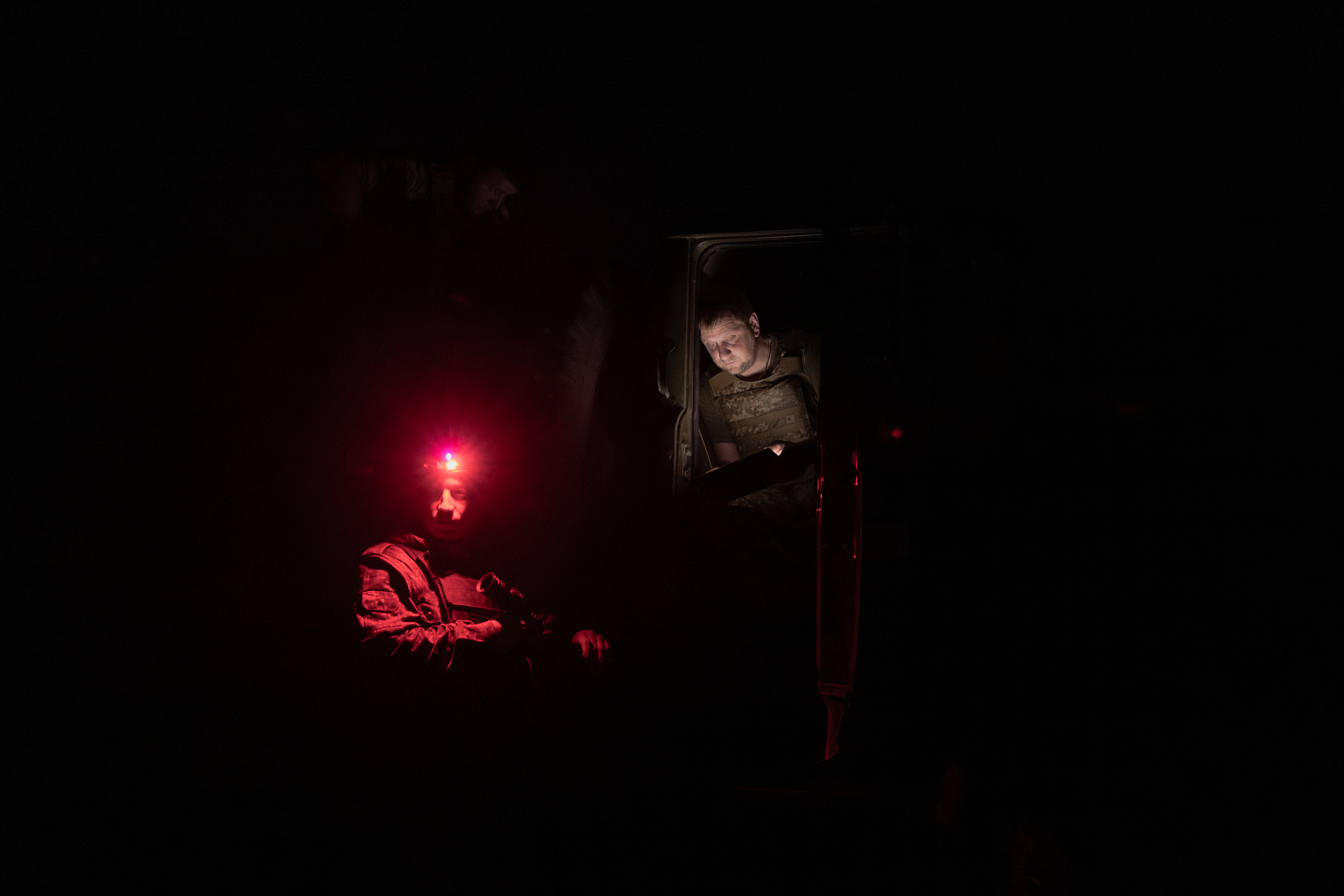 |
Ukrainian soldiers on duty at night near Pavlograd, Dnipropetrovsk province on 18/7. Photo: AFP |
Ukrainian soldiers on duty at night near Pavlograd, Dnipropetrovsk province on 18/7. Photo: AFP
Wolf, a member of another air defense unit in the Donetsk region, said he often struggles to sleep, haunted by the harrowing memories of fighting in eastern Ukraine.
Wolf's comrade, Belyi, was transferred to the unit after suffering a concussion and losing part of his hand to artillery fire while fighting in the east. Before the conflict, both were miners.
The UAV attacks are threatening the lives of their families in the city of Kryvyi Rig in the neighboring Dnipropetrovsk province. Neither has had leave to visit their families in over two years. Instead, they are fighting day and night.
Back near Pavlograd, as dawn revealed the dark circles under the soldiers' eyes, the whine of UAV engines again emerged from the horizon. The unit's anti-aircraft gun fired a burst and then jammed, forcing the soldiers to grab World War II-era machine guns to intercept.
A Gerbera UAV, once used only as a decoy weapon to overwhelm Ukraine's air defenses, is now equipped with a camera and targeting Vasyl's team.
"Only fools aren't afraid," he said.
Vasyl looked at a photo on his phone of his two children living in the capital Kyiv, which has also been subjected to numerous attacks, and said, "I'm here for them."
Thuy Lam (AFP)



